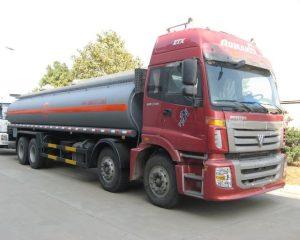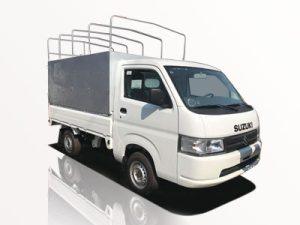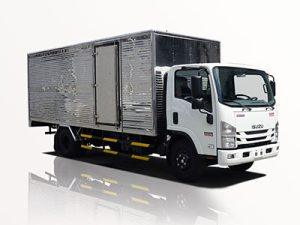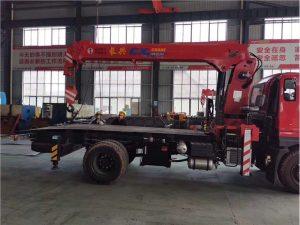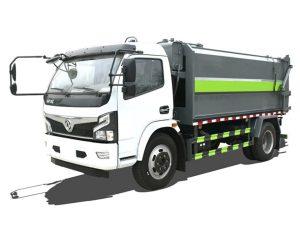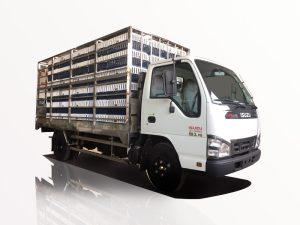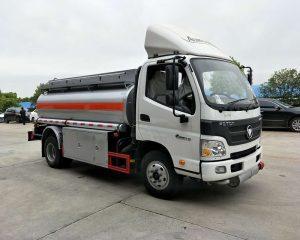Monday to Saturday - 8:00 -17:30
Waste Management Garbage Truck: A Comprehensive Guide
Waste management is an integral part of urban infrastructure, crucial for maintaining hygiene and ensuring the sustainability of our environments. At the heart of this system lies the garbage truck. This article will delve deep into the role of garbage trucks in waste management, their types, functionalities, technologies, challenges, and more.
Understanding Waste Management
Waste management refers to the collection, transportation, processing, recycling, and disposal of waste materials. It aims to reduce the impact of waste on the environment and human health.
The Importance of Effective Waste Management
- Protects public health by minimizing waste-related disease.
- Conserves the environment by reducing pollution and conserving resources.
- Encourages recycling and reuse, promoting sustainability.
The Role of Garbage Trucks
Garbage trucks are vital for the effective functioning of waste management systems. They are specially designed vehicles that collect and transport waste from residential, commercial, and industrial areas to disposal sites.
Types of Garbage Trucks
There are several types of garbage trucks, each serving specific purposes:
1. Rear-Loader Garbage Trucks
These trucks have a large opening at the back and are typically used for residential waste collection.
2. Front-Loader Garbage Trucks
These are more common in commercial waste collection, featuring a front-hopper design for easy loading.
3. Side-Loader Garbage Trucks
Utilized for automated waste collection, side-loaders are efficient and reduce the need for manual labor.
4. Compaction Trucks
These trucks compact waste to maximize load capacity, which is critical for efficient transportation.
5. Recycling Trucks
Specifically designed for collecting recyclable materials, these trucks often have separate compartments for different recyclables.
Working Mechanisms of Garbage Trucks
Understanding how garbage trucks operate enhances our knowledge of their efficiency and effectiveness in waste management.
Key Components of a Garbage Truck
| Component | Description |
|---|---|
| Chassis | The main frame of the truck that supports all components. |
| Compactor | Mechanism that compresses waste for maximum capacity. |
| Loader | Device used to pick up waste bins or containers. |
| Body | The container that holds the waste material. |
| Hydraulics | Sicontrol system for lifting and compacting waste. |
How Garbage Trucks Are Operated
Garbage trucks are usually operated by trained drivers who follow a predetermined route. Their operation typically includes:
- Arriving at the designated collection point
- Using the loader to collect waste bins
- Compact the waste before transporting it
- Transporting waste to the assigned disposal site
Technological Advances in Garbage Trucks
As technology evolves, so do garbage truck designs and functionalities. Modern trucks are equipped with state-of-the-art innovations.
Smart Garbage Trucks
These trucks use smart sensors and GPS for optimized routing, reducing fuel consumption and increasing efficiency.
Automated Collection Systems
Automated systems minimize manual labor by allowing the truck to lift and empty waste bins using robotic arms.
Environmental Features
Many new trucks are designed with reduced emissions and improved fuel efficiency, further reducing their environmental impact.
Challenges in Waste Management and Garbage Trucks
Despite their importance, garbage trucks face several challenges in waste management.
Overcoming Operational Hurdles
- Traffic congestion: This can slow down collection times.
- Lack of funding: Limited budgets can hinder the purchase of new equipment.
- Public awareness: Educating the public about waste segregation can improve efficiency.
Environmental Concerns
Garbage trucks contribute to air and noise pollution. The industry is working on solutions, such as electric garbage trucks and quieter operations.
Best Practices for Waste Management with Garbage Trucks
Implementing best practices can enhance the efficiency of garbage collection.
1. Regular Maintenance
Regular servicing of garbage trucks ensures they operate efficiently and last longer.
2. Route Optimization
Using GPS and route planning can minimize travel time, reducing fuel consumption and emissions.
3. Community Engagement
Educating communities about proper waste disposal encourages responsible waste management practices that support garbage truck efficiency.
Future of Waste Management and Garbage Trucks
The future is bright for waste management, with potential advancements including:
1. Electric Garbage Trucks
As electric vehicle technology advances, electric garbage trucks are expected to become more prevalent, reducing emissions significantly.
2. Autonomous Collection
The integration of self-driving technology may revolutionize garbage collection, leading to increased efficiency and safety.
3. Improved Recycling Technology
Enhancements in recycling processes will minimize waste and increase the amount of recycled materials collected by garbage trucks.
Case Studies and Practical Examples
Real-world examples can provide insights into effective waste management practices.
Case Study: San Francisco’s Zero Waste Initiative
San Francisco has adopted a comprehensive approach to waste management, aiming for zero waste by 2030, utilizing advanced garbage truck technology and community engagement.
Case Study: Toronto’s Green Bin Program
This program includes organic waste collection, with specialized trucks designed for compostable materials, showcasing effective waste segregation.
Frequently Asked Questions (FAQs)
1. What types of waste can garbage trucks collect?
Garbage trucks can collect general waste, recyclables, and organic waste, depending on their design and the waste management program in place.
2. How often do garbage trucks collect waste?
Collection frequency varies by location, but most residential areas have weekly pickups, while commercial locations may require more frequent collections.
3. Are there different trucks for different types of waste?
Yes, there are specialized trucks for recycling, organic waste, and general waste, each designed with specific compartments and mechanisms for efficient collection.
4. How can communities improve waste management?
Communities can improve waste management by promoting education on proper waste segregation, supporting local recycling initiatives, and participating in city-sponsored clean-up events.
5. What innovations are current garbage trucks implementing?
Many garbage trucks are implementing smart technology, including GPS for route optimization and automated systems for collecting waste containers.
6. Why is waste collection important for cities?
Effective waste collection is crucial for maintaining public health, enhancing environmental sustainability, and improving the overall quality of life in urban areas.


